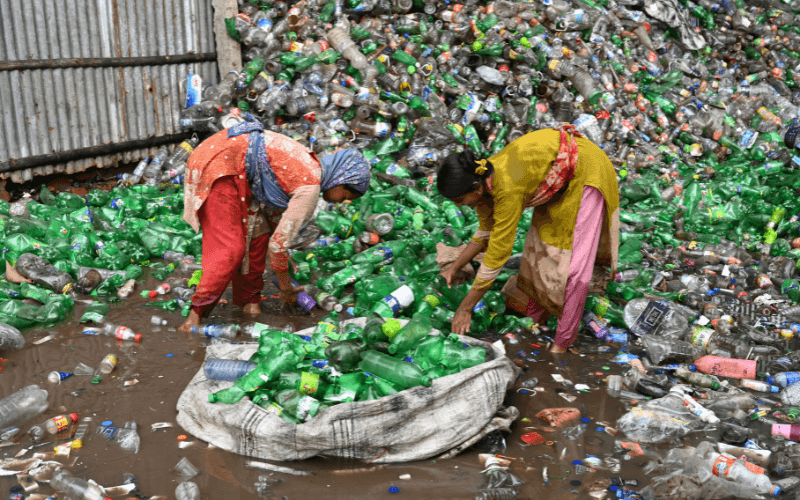
Tackling Plastic Pollution: 4th Session of the Intergovernmental Negotiating Committee Insights
News
Aug 12, 2024
As the global plastic pollution crisis intensifies, the need for decisive action has never been more critical. Approximately 10 billion tonnes of plastic have been produced since the 1950s, but over 8 billion tonnes have turned into waste. Alarmingly, 10-15 million tonnes of this waste leak into the marine environment each year, a figure projected to triple by 2050. This growing environmental threat demands urgent, coordinated global efforts.
The Global Response to Marine Plastic Pollution
Recognizing the severity of plastic pollution, particularly in the marine environment, the United Nations Environment Assembly (UNEA) has been at the forefront of global efforts to combat this issue. UNEA Resolution 3/7, for instance, established an Ad Hoc Expert Group (AHEG) to explore various response options, ranging from innovative approaches to legally binding governance strategies.
The fourth Intergovernmental Negotiating Committee (INC-4) session took place in Ottawa, Canada, from April 23 to 29, 2024. This crucial gathering aimed to develop an international legally binding instrument (ILBI) on plastic pollution, with a significant focus on the marine environment. The event attracted over 2,500 participants, including representatives from governments, academia, civil society organizations, private sector entities, UN bodies, and international organizations. Many others participated virtually via webcast. Professor Peter Orris represented the World Federation of Public Health Associations (WFPHA) from its Environmental Health Working Group.
Key Discussions and Divergences at INC-4
Throughout the seven-day session, delegates engaged in intensive negotiations within five Subgroups, guided by a Revised Draft Text developed after INC-3. While some areas of convergence emerged—such as plastic waste management and just transition—sharp divergences remained. Contentious issues included the inclusion of primary plastic polymers, the treatment of chemicals and polymers, and the integration of existing processes.
Despite these challenges, delegates agreed to use the outcomes of INC-4 as a foundation for further negotiations at the upcoming INC-5, scheduled for November 2024 in Busan, Republic of Korea.
The Health Sector’s Role in the Plastics Treaty
The health sector’s relationship with plastic pollution was a significant focus during INC-4. WHO and various civil society health groups actively participated in discussions, addressing the proposal to exempt the health sector from the treaty due to its extensive use of plastic products. Health organizations, united in their stance, argued against this exemption, emphasizing the need for special consideration rather than a blanket exclusion.
A letter from Health Care Without Harm, endorsed by WHO and signed by over 600 clinicians and 18 international professional associations, including WFPHA, called for an ambitious and just treaty to tackle plastic pollution within the health sector. The letter highlighted the sector’s heavy reliance on plastics, particularly single-use items, and urged governments to explore programs that eliminate non-essential uses and promote reusable, non-toxic alternatives.
Looking Ahead: The Road to INC-5
The negotiations at INC-4 made it clear that the road to an effective and comprehensive treaty on plastic pollution remains challenging. With the entire treaty still under discussion, decisions are only final once a consensus is reached. The upcoming INC-5 in Busan will be critical in these negotiations as the world watches to see how rapidly and effectively the international community can address the mounting plastic pollution crisis, particularly in our oceans.
As the journey towards a legally binding instrument continues, the global community remains hopeful that these efforts will lead to significant progress in protecting the marine environment from the devastating impacts of plastic pollution.
